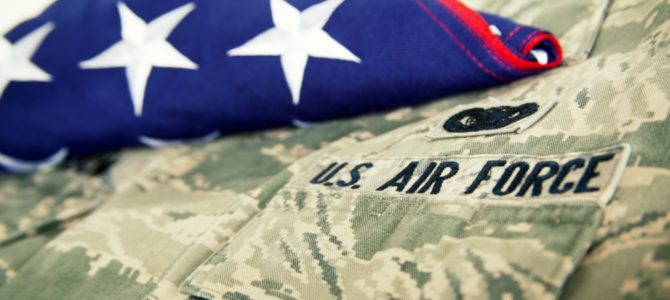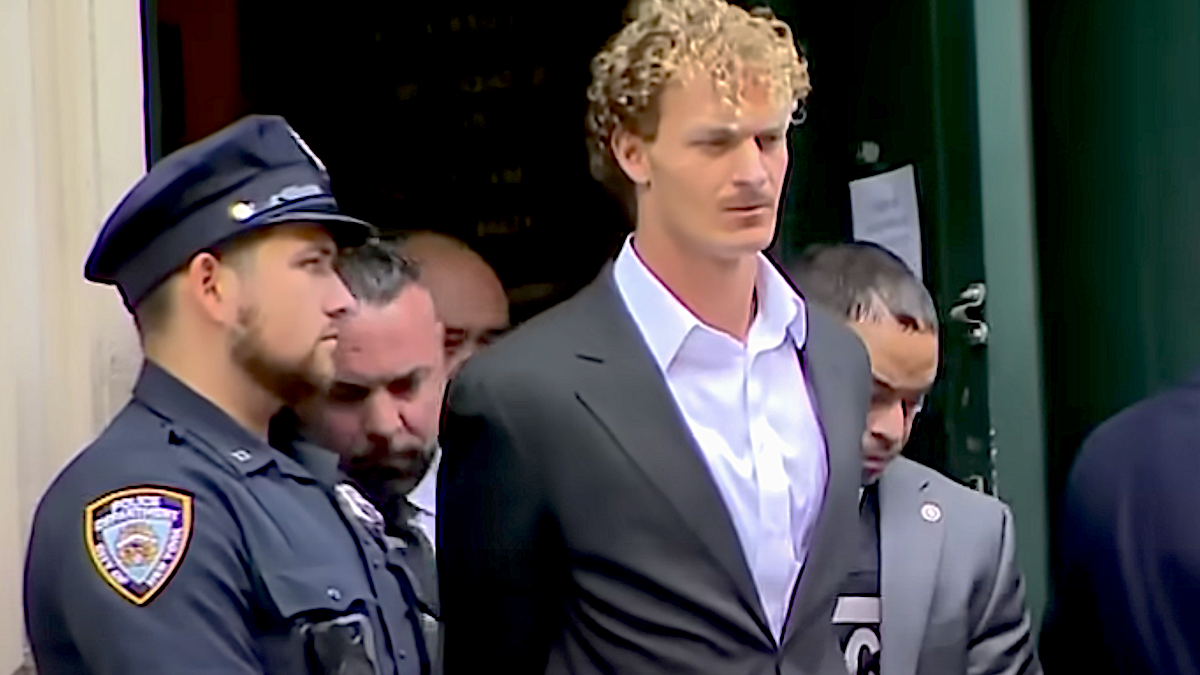
On June 1, Air Force Chief Master Sergeant Kaleth O. Wright took to Facebook to voice his thoughts on the death of George Floyd. Wright is exceptionally popular with airmen and on social media. He has a podcast on leadership, gives talks around the country, and has used his time as CMSAF to boost the morale and welfare of the regular rank-and-file.
Wright’s “mic-drop” on Facebook comes just a few months before his retirement. He had an excellent opportunity to help unify the Air Force around a sense of common purpose and mission before hanging up the boots. Instead, Wright turned inward and defaulted to groupthink and grievance.
Social media is not typically a place to find solidarity. If Wright felt he must speak out on a national-level crisis, he should have written his message on official Air Force letterhead, adhering to the tapered three-bullet format, with policy recommendations and well-defined terms, making it clear that what was written was personal, not an endorsement from the entire organization. Yet like many homespun homilies posted to Facebook or Twitter, Wright’s “address” is burdened by imprecise language.
He calls for certain airmen to be “seen, heard, and treated like human beings,” but offers no image of who these airmen are or how their wingmen have failed to see, hear, and treat them. Wright claims the Air Force has “not made much progress” in fighting “racial injustice” but fails to provide reference points for where we started and a principled argument for where we ought to be.
As a result, Wright’s readers are left with little more than a vague, ugly feeling. He capitalizes “Black,” turning an adjective into a partial proper noun. He highlights a “lack of diversity in our senior officer ranks,” an ironic charge considering the incoming chief of staff is black, not to mention that Wright’s very own replacement is a woman and native Hawaiian.
Implying that the Air Force ought to institute race-based quotas is not leading from the front or the rear but from the surface. It’s an appeal, driven entirely by emotion, that ignores the Air Force’s own data showing that black Americans are proportionally represented in its ranks. Instead of promoting the integrity of the Air Force, Wright shines a self-appointed light upon imagined differences.
Leaders Should Not Promote Grievance Politics
Wright delivered his anecdotal grievance from a position of hard-earned but unelected duty. Instead of acknowledging personal choice, the day-in, day-out 31-year effort of service and sacrifice that has built his career, Wright chooses to define himself according to a non-voluntary trait.
“Who am I?” Wright asks. “I am a Black man who happens to be the Chief Master Sergeant of the Air Force.” This is exactly backward. It suggests the highest-ranking enlisted position came to him by accident. In the military, who you are is not the color of your skin or where you come from but what you wake up every day and do.
We make choices, we serve one another, we even give each other little ribbons for doing remarkably selfless things. Military leaders are meant to promote service through a humble example. They are not meant to traffic in assertions which cannot be disproved. They are not meant to virtue-scare coercive consensus.
Wright should abstain from the expression of opinion in uniform because it corrupts the integrity of service, for him, and every single Airman. In truth, Kaleth O. Wright is the chief master sergeant of the Air Force — he only happens to be black.
On June 1, our country reeled from Floyd’s death and the several nights of riots and lawlessness that followed. But instead of praising the protests while condemning the riots, Wright sought the example of rapper and activist Killer Mike, whose lyrics openly call for killing police.
On June 7, Wright posted a meme: “The Standard You Walk Past Is the Standard You Accept.” With this blind spot, Wright allows airmen to believe he thinks the riots are justified. This sort of ambiguity does not foster unity. Additionally, this lack of leadership is particularly alarming given the real possibility we may be called upon against our own fellow Americans to uphold law and order.
Within 24 hours of Wright’s post, Chief of Staff Gen. David L. Goldfein released a statement of total support. In his corollary, Goldfein called Floyd’s death a “national tragedy,” proclaiming “all Americans should be outraged” by what occurred. We were. We are.
But following Goldfein’s lead, every officer in our chains of command assumed unwavering total approval of Wright’s initial sentiment. Must our most senior leadership dally into “public relations” with every “national crisis”?
The incentives to come out on the “right side” of American cultural events are powerful in a leadership culture that rewards conformity of opinion, but this is not the job of America’s military leaders. Wright’s post forced every four-star, colonel, captain, and sergeant to “bandwagon” along. Now the rank-and-file must wonder whether our commanders are making a particular decision based on political calculations.
Integrity, Service, and Excellence
Joint Base San Antonio-Lackland lies along a Texas outer-belt highway. It is the sole location used for basic military training for the U.S. Air Force. Closer to the border than Dallas or Houston, closer to Cuba than Capitol Hill, and with a dusty landscape, scraped-over, and burnt, it bears many similarities to Mars.
Yet on this version of the Red Planet, you are the alien. For many trainees — strangers from every corner of the country — the base is their first real trip away from home. Upon arrival, the bus passes beneath a sign: “Gateway to the Air Force.” Eventually, you come to realize that distance and estrangement are part of the objective.
Every Thursday, at 07:00, trainees in blue tracksuits gather in ranks for the Airman’s Run. It’s the last day of Basic. After eight weeks of training, everyone gets to run through the base in a sort of jogging parade. Families fly in and book-out all the hotels. Moms and dads and in-laws and siblings line the streets and wait.
Then, as the formation reels slowly by, they see them, and the entire base roars. Phones are held aloft while tear-stained cheeks represent the pride of those who witness just how much their loved ones have changed.
Weeks before, they left their homes dressed in T-shirts and blue jeans. Now, their sons and daughters are airmen — a vast moving mass of shatterproof blue. At some point, the runners pass beneath another sign: “Integrity, Service, Excellence.” These words, the Air Force Core Values, speak to the belief that while you were someone before, you are here now, and this is who you are.
American Airmen deserve superior leaders. But social media pathos does not bring credit to integrity, service, or excellence. Military leaders who comment and write on divisive debates degrade our cohesion in an age of great-power conflict.
The flag patch on our shoulders points backward because we run into danger as one body. Together, we swore an oath to the U.S. Constitution. The Armed Forces are a microcosm of the American promise. We are black, white, children, parents, men, and women. We come from Fargo, El Paso, Compton, and even Guam.
The uniforms we wear display our name on one side and “U.S. Air Force” on the other, and when we don it, we are no longer red nor yellow nor black nor white, but blue. We are American airmen, with common endeavors and shared values: integrity first, service before self, and excellence in all we do.









